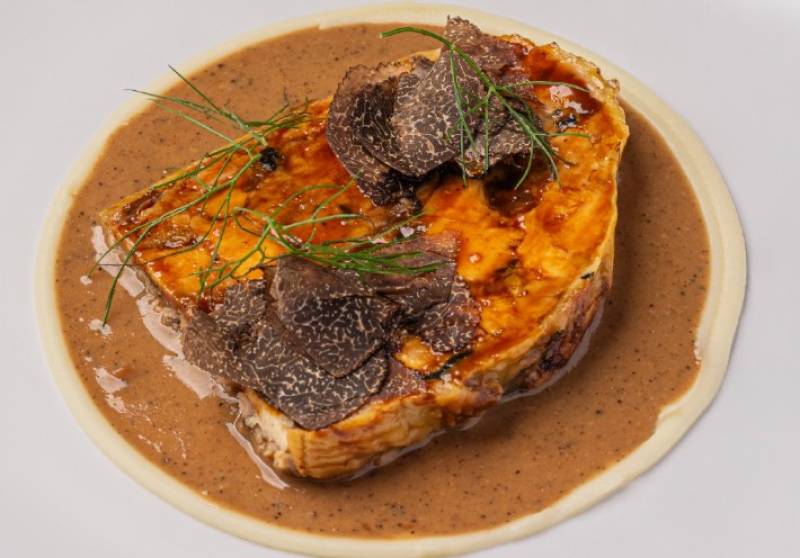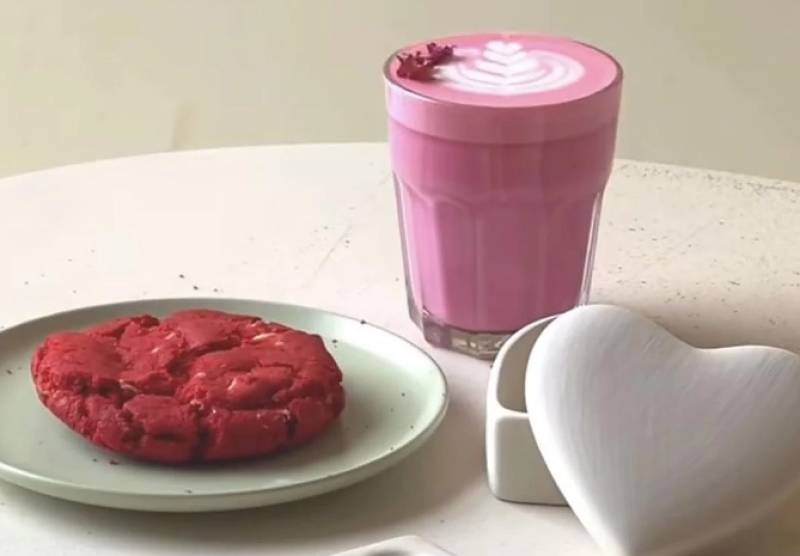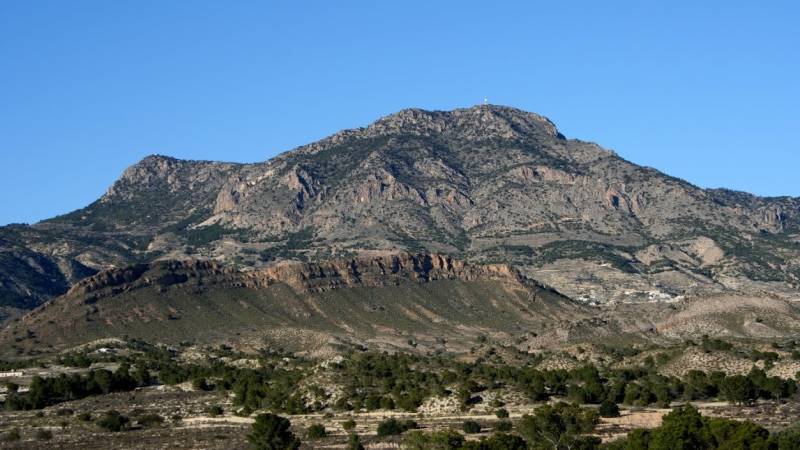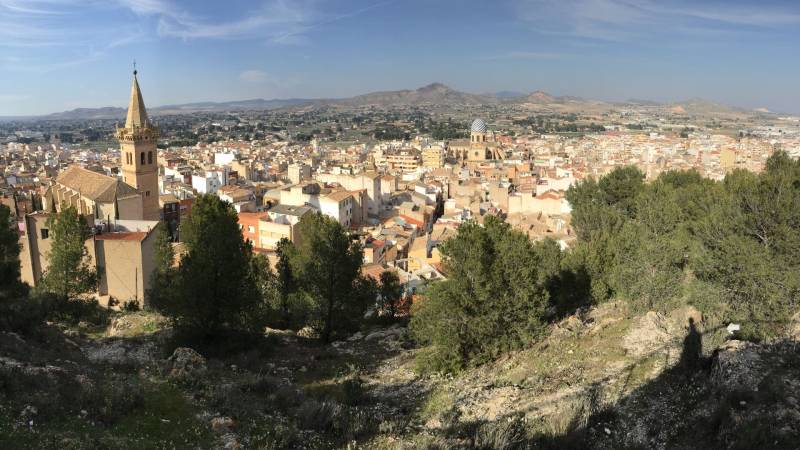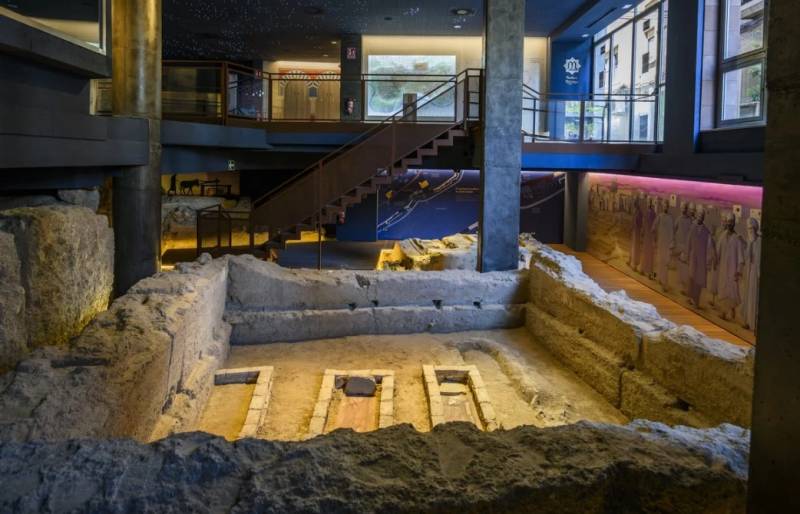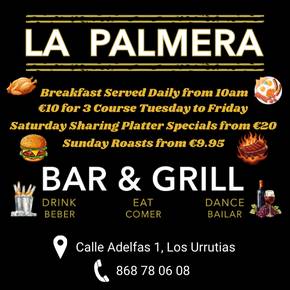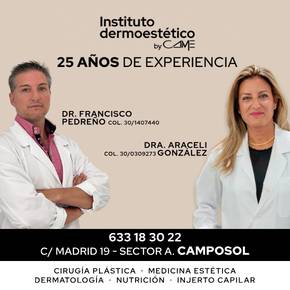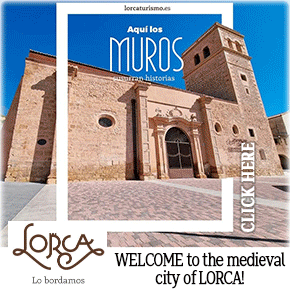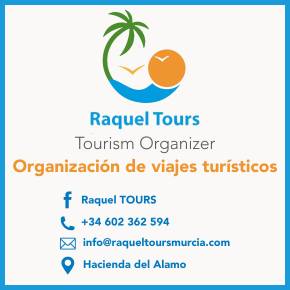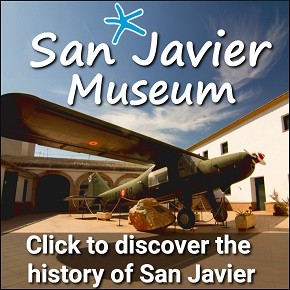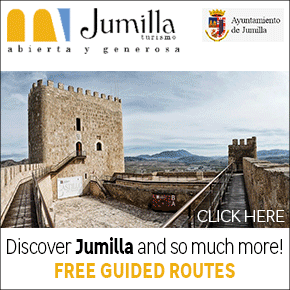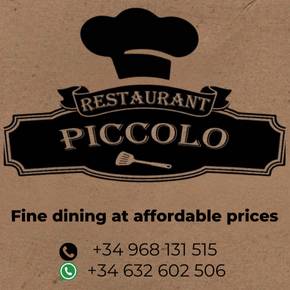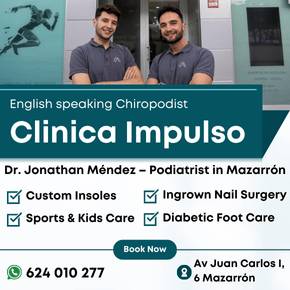

Guidelines for submitting articles to Santa Rosalia Today
Hello, and thank you for choosing Santa Rosalia.Today to publicise your organisation’s info or event.
Santa Rosalia Today is a website set up by Murcia Today specifically for residents of the urbanisation in Southwest Murcia, providing news and information on what’s happening in the local area, which is the largest English-speaking expat area in the Region of Murcia.
When submitting text to be included on Santa Rosalia Today, please abide by the following guidelines so we can upload your article as swiftly as possible:
Send an email to editor@spaintodayonline.com or contact@murciatoday.com
Attach the information in a Word Document or Google Doc
Include all relevant points, including:
Who is the organisation running the event?
Where is it happening?
When?
How much does it cost?
Is it necessary to book beforehand, or can people just show up on the day?
…but try not to exceed 300 words
Also attach a photo to illustrate your article, no more than 100kb

Empanadas de patata, a culinary favourite of Yecla
The potato pasties are especially popular in Yecla during Easter
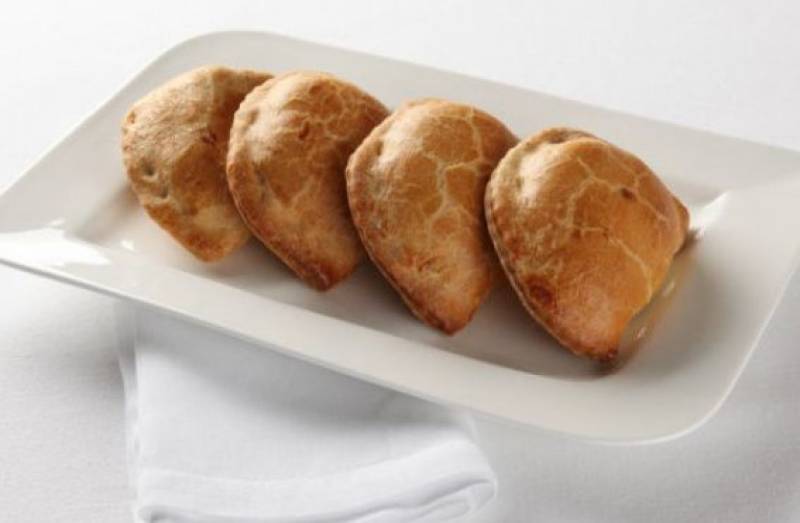 This dish is particularly popular in Yecla during Semana Santa but is available locally all year round, and is essentially a kind of potato-filled pasty.
This dish is particularly popular in Yecla during Semana Santa but is available locally all year round, and is essentially a kind of potato-filled pasty.
Ingredients for the filling
1.5 kg potatoes
250 g canned tuna
5 eggs
500 g tinned red pepper
Parsley
Pine kernels
Ingredients for the pastry
Flour (as much as needed)
2 glasses white wine
1 glass of olive oil
Salt
Saffron or food colouring
Instructions: Place the flour in a bowl, make a hole in the centre and pour in the oil and wine after heating them gently in a saucepan for a few minutes (without boiling). Then mix the flour with the salt and saffron until the dough no longer sticks to the hands.
Knead well and place thin individual portions the size of small pancakes. Now peel, wash and cut the potatoes into fine slices, and sauté them in oil together.
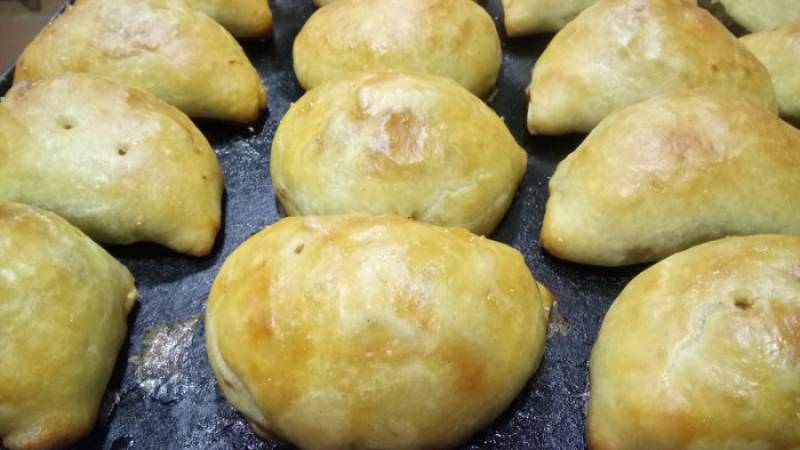 Next, place them in a bowl, draining off the oil when taking them out of the frying pan, cut the peppers into thin strips and crush the parsley. Hard-boil 4 eggs and cut these too into small pieces.
Next, place them in a bowl, draining off the oil when taking them out of the frying pan, cut the peppers into thin strips and crush the parsley. Hard-boil 4 eggs and cut these too into small pieces.
Now mix the potatoes with the peppers, parsley, eggs, tuna and pine kernels and put around two soup spoonfuls of the mix onto each portion of pastry. Fold the pastry portions closed and seal the edges with the appropriate cooking implement (or fingernails!).
Finally, use the fifth egg to baste the empanadas with a brush before cooking in the oven.
Note: a popular variant on the dish uses fried tomato paste instead of potatoes.
If visiting Yecla don’t forget to make sure one of your first ports of call is the tourist office (Plaza Mayor, 1, telephone 968 754104, email turismo@yecla.es).
For more local events, news and visiting information go to the home page of Yecla Today.
Oficina de Turismo de Yecla
In early 2025, due to renovation work at the usual office, the service is located on the other side of the Plaza Mayor at Calle Epifanio Ibáñez nº 2 (click for map).
 Yecla is a large municipality in the north of the Region of Murcia, home to just under 35,000 people, and these days is best known for its wines, which enjoy Denomination of Origin status, and its furniture production, which has its origins in the abundance of pine trees on the mountainsides and the high plateaux.
Yecla is a large municipality in the north of the Region of Murcia, home to just under 35,000 people, and these days is best known for its wines, which enjoy Denomination of Origin status, and its furniture production, which has its origins in the abundance of pine trees on the mountainsides and the high plateaux.
 While visitors in the 21st century may be attracted primarily by wine tourism, the town (or city, as it was proclaimed in 1878) also has a wide historical, cultural and natural heritage, and an identity quite different from the coastal areas of the Region of Murcia. For this reason it is often grouped together with its neighbour and fellow wine-producing area Jumilla as part of the Altiplano area.
While visitors in the 21st century may be attracted primarily by wine tourism, the town (or city, as it was proclaimed in 1878) also has a wide historical, cultural and natural heritage, and an identity quite different from the coastal areas of the Region of Murcia. For this reason it is often grouped together with its neighbour and fellow wine-producing area Jumilla as part of the Altiplano area.
Yecla borders with Castilla-La Mancha and the Region of Valencia and is closer to Alicante coastal areas than much of Murcia. These visitors come to see the historic old town itself - an atmospheric and interesting place, crammed full of history - the natural beauty of Monte Arabí, with stunning views for those who enjoy the outdoors, the gastonomy and of course the wine route.
 Yecla boasts cave paintings from 10,000 years ago in Monte Arabí, a Bronze Age settlement at El Arabilejo, Iberian remains in El Pulpillo and a Roman administrative centre at Los Torrejones as well as the remnants of the 11th century Moorish castle on the hill behind the town. More modern (and complete) testimony to the past are the buildings in the town centre, which include the grandiose Basílica de la Purísima, with its striking blue dome, the archaeological museum and the attractive Plaza Mayor, where the 16th century Town Hall stands alongside the Renaissance Casa de los Alarcos, the clock tower and the old grain store.
Yecla boasts cave paintings from 10,000 years ago in Monte Arabí, a Bronze Age settlement at El Arabilejo, Iberian remains in El Pulpillo and a Roman administrative centre at Los Torrejones as well as the remnants of the 11th century Moorish castle on the hill behind the town. More modern (and complete) testimony to the past are the buildings in the town centre, which include the grandiose Basílica de la Purísima, with its striking blue dome, the archaeological museum and the attractive Plaza Mayor, where the 16th century Town Hall stands alongside the Renaissance Casa de los Alarcos, the clock tower and the old grain store.
 The tourist office holds a full selection of leaflets, maps, pre-planned routes, accommodation and restaurant options and information about visiting Yecla for both individuals and groups.
The tourist office holds a full selection of leaflets, maps, pre-planned routes, accommodation and restaurant options and information about visiting Yecla for both individuals and groups.
There is parking close to the tourist office, although those driving to Yecla for the first time are advised to park in Calle Perales.
For further information go to the home page of Yecla Today.
Opening hours:
Tuesday to Friday 8.00 to 15.00
Saturdays 10.30 to 14.00 and 17.00 to 19.30.
Public holidays 10.30 to 14.00
Click for map, Yecla tourist office







